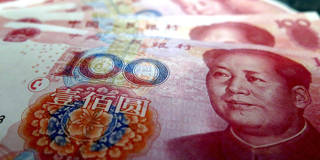The decision to include the Chinese renminbi in the currency basket that determines the value of the IMF's reserve asset seems to be a done deal. Far from having been made on solid economic grounds, the decision can only be understood as political, which means that the long-term consequences are likely to be regrettable.
SANTA BARBARA – The Chinese government’s campaign to have its currency, the renminbi, included in the International Monetary Fund’s reserve asset appears to be on the brink of success. Last week, IMF staff formally recommended adding the renminbi to the basket of currencies that determines the value of its so-called Special Drawing Rights (SDRs).
The addition of the renminbi to the basket, which currently includes the US dollar, the euro, the British pound, and the Japanese yen, would provide China with a boost to its prestige. More important, it would advance the government’s efforts to internationalize the renminbi. But it would also be a mistake. The decision to recommend the renminbi’s inclusion, far from having been made on sound economic grounds, can only be understood as political. As such, the long-term consequences are likely to be regrettable.
On a purely technical basis, the renminbi’s qualifications for inclusion in the SDR basket are questionable. Traditionally, the IMF has insisted on two criteria: a currency’s issuing country must be among the world’s leading exporters, and the currency must be “freely usable” – widely used and traded.

SANTA BARBARA – The Chinese government’s campaign to have its currency, the renminbi, included in the International Monetary Fund’s reserve asset appears to be on the brink of success. Last week, IMF staff formally recommended adding the renminbi to the basket of currencies that determines the value of its so-called Special Drawing Rights (SDRs).
The addition of the renminbi to the basket, which currently includes the US dollar, the euro, the British pound, and the Japanese yen, would provide China with a boost to its prestige. More important, it would advance the government’s efforts to internationalize the renminbi. But it would also be a mistake. The decision to recommend the renminbi’s inclusion, far from having been made on sound economic grounds, can only be understood as political. As such, the long-term consequences are likely to be regrettable.
On a purely technical basis, the renminbi’s qualifications for inclusion in the SDR basket are questionable. Traditionally, the IMF has insisted on two criteria: a currency’s issuing country must be among the world’s leading exporters, and the currency must be “freely usable” – widely used and traded.